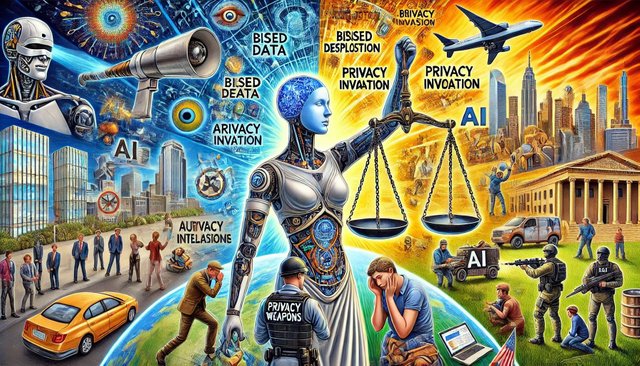
Introduction
Artificial intelligence (AI) has made remarkable strides in recent years, transforming industries and altering the fabric of our daily lives. From healthcare and education to transportation and entertainment, AI is becoming an integral part of our world. However, with great power comes great responsibility. As we continue to integrate AI into various aspects of society, it’s crucial to address the ethical dilemmas that arise. This blog post will delve into some of the most pressing ethical issues related to AI and provoke a discussion on whether we are truly ready for this technological revolution.
Key Ethical Dilemmas
1. Bias and Discrimination: One of the most significant ethical concerns is the potential for AI systems to perpetuate or even exacerbate existing biases. Algorithms trained on biased data can make discriminatory decisions in areas like hiring, lending, and law enforcement. How can we ensure fairness and impartiality in AI decision-making?
2. Privacy Invasion: AI technologies often require vast amounts of data to function effectively. This raises serious privacy concerns. How much personal information are we willing to sacrifice for the sake of convenience and efficiency? What measures can be implemented to protect individual privacy?
3. Accountability and Transparency: When an AI system makes a mistake or causes harm, who is held accountable? The lack of transparency in AI algorithms can make it difficult to understand how decisions are made. How can we create systems that are both transparent and accountable?
4. Job Displacement: The automation of jobs through AI could lead to significant unemployment, particularly in low-skilled positions. While AI has the potential to create new jobs, the transition period could be challenging. How can we prepare the workforce for this shift and ensure economic stability?
5. Autonomous Weapons: The development of AI-powered autonomous weapons poses a serious ethical dilemma. The potential for these weapons to make life-and-death decisions without human intervention raises critical moral questions. Should we impose strict regulations or even ban the development of autonomous weapons?
Discussion Questions
1. How can we address and mitigate bias in AI systems? What role should governments and organizations play?
2. What are the best practices for balancing AI innovation with privacy protection? Are current regulations sufficient?
3. How can we ensure that AI systems are transparent and that accountability is clearly defined?
4. What strategies can be implemented to support workers displaced by AI and automation? How can we foster a smooth transition to an AI-driven economy?
5. Should there be international agreements on the development and use of AI in military applications? What ethical frameworks should guide these decisions?
Conclusion
Artificial intelligence holds immense promise, but it also presents substantial ethical challenges. As we continue to advance AI technology, it is imperative that we engage in open and thoughtful discussions about these issues. Are we ready to handle the ethical implications of AI? Your thoughts and opinions are crucial in shaping the future of AI. Join the conversation and share your views!